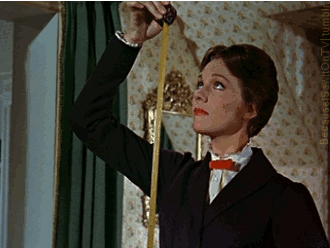It's the loyalty oath, of course.
Still, how can you be a thoroughly effective advocate when you're sworn to express no opinions but those you're told to have? What if those opinions are not in the best interests of those you represent? And how many members even know that the union is ruled by an invitation-only group that whose meetings are top-secret, a group which half a century ago expelled members for opposing the Vietnam War?
Sometimes I grow weary of nonsense. Often, in fact. A commenter here has made several false statements in response to posts here. Most recently, this commenter asserted that the new evaluation system did not affect due process at all. That's not true.
The primary reason that's not true is that teachers facing 3020a, up until now, have had the burden of proof on the city. That is, the city was required to prove their incompetence. Now, if a "validator" agrees with the city, that teachers will have to prove either their competence, or lack of incompetence. That's going to be tough.
While it's true that U-rating appeals have been basically a rubber stamp for the city, the new agreement provides that up to 13% of negative ratings will go to an independent arbitrator. While I cannot predict how the de Blasio administration will deal with such ratings, and while I certainly hope they will be more reasonable than the fanatical ideologues Bloomberg put in place, I wouldn't wish to be the one who tells 87% of teachers facing high-stakes ratings how sorry I was. Nor do I see the equity in promising fairness to only 13% of people in trouble.
In case that's not enough, the history of jointly-appointed independent arbitrators has been one of compromise, so it's likely only half of the lucky 13% will prevail. Should that be the case, the UFT rationale that about 13% of cases prevailed in the past will prove not to be a good one.
I'm always amazed to hear UFT leadership criticize Bloomberg for top-down decision making, precisely what it practices. In fact, our leadership has supported mayoral control, junk science VAM rating for teachers, Common Core, high-stakes testing, and a contract that eviscerated many hard-won victories. We've embraced a highly-flawed reformy agenda.
We endorsed a mayoral candidate who publicly opposed raises for teachers, even though other unions got them. UFT worked feverishly to get Bill Thompson elected, but with de Blasio surging, I declined to participate. When the UFT came to its senses, after a chapter leader meeting I was the only one who went and made calls for de Blasio. With me were two members from my school, and we represented 50% of the phone bank.
I don't have anything against anyone who chooses to join Unity, and I'm friends with a lot of Unity members. As in any group, some are wonderful, while others are not so wonderful. Regardless, I take exception when people lie, as a commenter did when he claimed there was no loyalty oath. I happen to have a copy of the Unity application. It says, exactly, that the applicant promises:
-
To express criticism of caucus policies within the Caucus;
-
To support the decisions of Caucus / Union leadership in public or Union forums;
-
To support in Union elections only those individuals who are endorsed by the Caucus,
and to actively campaign for his / her election;
-
To run for Union office only with the support of the caucus;
-
To serve, if elected to Union office, in a manner consistent with Union / Caucus policies
and to give full and faithful service in that office;
Personally, I'm hard-pressed to see how that allows for public dissent with Unity policy. Comments here are open, and Unity members are welcome to say what they wish.
But it's utter nonsense to dispute the loyalty pledge, and independent thought is not precisely what those clauses encourage. It's hard for me to understand how union activism is stoked by policies like these. And it's particularly hard to understand how placing brick walls around dissenting factions aids union democracy, the union itself, or working teachers (86% of whom don't deem it worth their time to even vote in union elections).
It's particularly hard to understand when people like Diane Ravitch (and me) are proven right, as in Bill de Blasio, mayoral control, VAM, Common Core, and everything else that we've been on the wrong side of.








